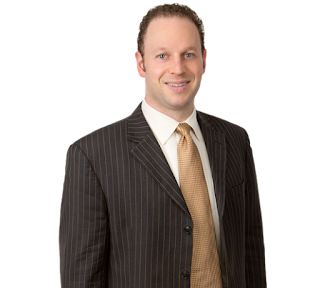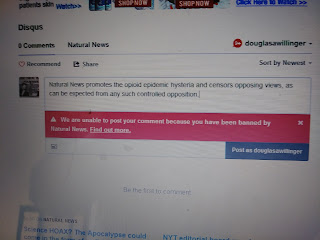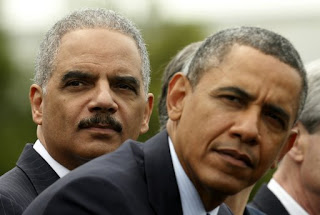Covington & Burling and Drug Policy Reform & Creation
Drug Policy Alliance Panel Proposal
for the International Drug Policy Reform Conference;
November 18-21, 2015:
Crystal Gateway Marriott
1700 Jefferson Davis Highway
Arlington, VA 22202
Covington & Burling and Drug Policy
James Harry Covington
"... Mr Hutchins made urgent calls for assistance around the country, including one to Kevin Zeese of NORML in Washington. Mr. Zeese contacted one of the most prestigious law firms in the country, Covington & Burling of Washington, D.C. Lawyers David B. Isbell and Michael G. Michaelson, who is also a medical doctor, entered the case pro bono on behalf of Joe Hutchins, arguing in their first memorandum of law filed in November 1985 the the defense of medical necessity should be heard. A judge issued another stay of the case and the case is now on appeal."Commonwealth v Hutchins was an early medical marijuanna case:
http://cannabisnews.com/news/23/thread23642.shtml
Joseph Hutchins, was a forty-eight year old Navy veteran who suffered from scleroderma and Raynaud’s phenomenon.131 In addition to causing other physical ailments, these diseases had an especially severe effect on Hutchins’ gastrointestinal tract.132 Hutchins found that smoking marijuana alleviated many of his symptoms including: nausea; loss of appetite; difficulty in eating, drinking or swallowing; loss of mobility of the esophagus; spasticity; hypertension; and anxiety.133 Unable to secure a legal supply of marijuana, Hutchins was eventually arrested for cultivating and possessing two pounds of marijuana with the intent to distribute.134 The court determined that a threshold question in such cases is whether the harm that would have resulted from compliance with the law significantly outweighs the harm that reasonably could result from the court’s acceptance of necessity as an excuse.135 Only when the circumstances favor excusing the defendant, will the court then inquire into the elements of the defense.136 The court held that the harm to the defendant did not [*PG719]outweigh the potential harm to the public as a result of the negative impact on drug enforcement efforts, and thus, there was no error in denying the right to present the medical necessity defense.137
Covington & Burling has been directly involved with drug policy reform organizations through their pro bono program since at least 1988. It was then when the firm selected an attorney that they hired in 1987, and who is subsequently listed as insurance, food additive and pharmaceutical industry specialist, to advise the Drug Policy Alliance’s predecessor organization, the Drug Policy Foundation, and at Covington since.
While the Drug Policy Foundation has outstanding counsel in Kevin Zeese, the leading Washington law firm Covington and Burling accepted the Foundation as a pro bono publico [for the public good] client in regard to corporate and tax matters in 1988. We have received valuable advice from Marialuisa Gallozzi, the Covington and Burling associate assigned to take primary responsibility for advising the Foundation. Having Covington and Burling in our corner is a source of great comfort.”In 2005 the firm’s web site (Health page) would note their long standing involvement with drug policy reform organizations.
http://freedomofmedicineanddiet.blogspot.com/2008/03/drug-policy-foundation-advised-by-c.html
Commonwealth v. Hutchins. We represent Mr. Hutchins and the interests of similarly situated patients for whom the medical use of marijuana is necessary, in a variety of state and national initiatives aimed at decriminalizing such use. We work closely with the Drug Policy Foundation, the Marijuana Policy Project and sympathetic members of Congress and selected state legislatures. American Civil Liberties Union - Drug Policy Litigation Project. We were asked to assist the ACLU in preparing a letter to the Drug Enforcement Agency in support of an application by a professor at the University of Massachusetts for registration to manufacture or distribute controlled substances for the purposes of a scientific study on medical marijuana. Specifically, they requested that we opine on the consistency of the application with the United States' treaty requirements pursuant to the 1961 Single Convention on Narcotic Drugs. We have continued to provide advice on related aspects of this matter.
And as noted at the web site Raw Story in a post dated September 2011:
"The Multidisciplinary Association for Psychedelic Studies (MAPS) has received free legal representation in a lawsuit against the DEA over a license to grow marijuana for federally regulated research.
The D.C.-basedlaw firm Covington & Burling LLP, one of the foremost law firms representing the pharmaceutical industry, has offered pro-bono legal representation to the research group to appeal the DEA’s August 15 final order in the First Circuit Court of Appeals. MAPS estimated the law firm saved them $175,000 in legal costs.
The DEA rejected University of Massachusetts professor Lyle Craker request to obtain a license to grow marijuana to study its potential medical uses, claiming that the National Institute on Drug Abuse (NIDA) can be the only one to supply marijuana for Food and Drug Administration (FDA)-regulated research."
Covington & Burling was involved with the landmark Raich v Gonzalez case via at least one of its attorneys, Joshua Greenburg
This work follows a long history of involvement with food and drug policy, going back to its founding in 1919 when it took its first client the Grocery Manufacturers of America, and went on to become arguably the largest and most important legal representative of the food, pharmaceuticals and tobacco-cigarette industry. As the firm describes itself:
The founders of Covington & Burling foresaw the pervasive effects of the forthcoming era of federal legislation, regulation, and taxation. In 1919, they sought to create a firm in the nation's capital that could advise and represent corporations located anywhere in the nation or the world on a wide range of legal issues. Today our Washington office has over 300 lawyers representing clients according to the highest standards and fulfilling the firm's strong commitment to public service. Our lawyers are supported by nearly 100 paralegals and by information management specialists in the library, and in the litigation and practice support, and technology departments.The firm was founded by James Harry Covington, a law professor at Georgetown University Law, had served as a federal judge who upheld the Harrison ‘narcotics’ Act of 1914, after serving as a US Congressman who was present at the Congressional deliberations regarding amending the 1906 Pure Food and Drugs Act that led to the creation of the 1914 Harrison Act. That case would uphold the Harrison Act’s delegation of regulatory authority to the U.S. Treasury Department to define what constituted ‘professional medical practice’- effectively giving that entity the authority to practice medicine without a license.
http://www.covingtonandburling.com/offices/washington/description.html
The firm is described as "...not just another law office..."
http://freedomofmedicineanddiet.blogspot.com/2011/10/covington-burling-is-not-just-another.html
From “The Super-Lawyers: The Small and Powerful World of the Great Washington Law Firm”
by Joseph C. Goulden; chapter 1: “Covington & Burling: Pinnacle of Power” pp 21-22Covington & Burling is not simply a leader in representing food and pharmaceutical interests, but also the Tobacco-cigarette industry.
“… Covington and Burling is not just another law office. It is, in fact, Washington’s oldest, largest and probably best national law firm. At one time or another, it has performed legal services for most blue-chip corporations in America. Unlike many forms, Covington and Burling doesn’t list representative clients in Martindale and Hubbell, the quasi-official legal directory. But, estimates one partner, “We’ve done things for, I’d say, twenty percent of the companies on Fortune’s list of the five hundred top corporations.” GM, AT&T, DuPont, CBS, American Airlines- you get the idea. Because of he diversity of talent afforded by the sheer size, Covington and Burling is perhaps the only law firm in Washington that can assign a specialist to handle any problem a client has before the Federal government, from defending a criminal antitrust case to obtaining an arms export license or convincing the Food and Drug Administration of the safety of a patent medicine or fancy new combination drug. Covington and Burling lawyers possess that special confidence that comes from expertise and power, and think in commensurately grand terms.”
http://freedomofmedicineanddiet.blogspot.com/2011/09/tobacco-industry-httpwww.htmlNaturally thus, the participation of Covington & Burling in the drug policy reform-legalization movement is potentially quite eyebrow raising- and deserves spotlighting via a panel as here proposed.
http://www.sourcewatch.org/index.php?title=Covington_%26_Burling
Covington & Burling also served as "corporate affairs consultants" to the Philip Morris group of companies, according to a 1993 internal budget review document which indicated the firm was paid $280,000 to "serve as general counsel fo the Consumer Products Company Tort Coalition, agree the legal objectives with member company litigators, draft legislation and amendments, prepare lobby papers and testimony for legislative committees and administer the coalition's budget". [6]
Covington & Burling was involved in organizing Philip Morris' Whitecoat Project, designed to help obscure the health effects of exposure to secondhand tobacco smoke.
During the $280 billion U.S. federal lawsuit against Big Tobacco, Covington & Burling partner John Rupp, a former lawyer with the industry-funded Tobacco Institute, testified that "the industry sought out scientists and paid them to make an 'objective appraisal' of whether secondhand smoke was harmful to non-smokers, a move they hoped would dispel the 'extreme views' of some anti-smoking activists." He said "the scientists, who came from prestigious institutions such as Georgetown University and the University of Massachusetts, did not consider themselves to be working 'on behalf' of cigarette makers even though they were being paid by the industry." Rupp said, "We were paying them to share their views in forums where they would be usefully presented," according to Reuters. [7]
Partners in Covington & Burling include, but are not limited to, Keith Teel, Allan Topol and John Rupp, who have knowledge of lobbying tactics employed in Texas by the tobacco industry. The "push poll" conducted January 20-25, 1996, regarding Attorney General Dan Morales, was commissioned by Covington & Burling, and funded by Brown & Williamson, Lorillard, Philip Morris and R.J. Reynolds Tobacco Company. Teel was a member of the tobacco industry delegation who met with Attorney General Dan Morales in February, 1996 in an attempt to prevent the filing of the state's lawsuit against the tobacco industry to recoup Medicaid costs for treating sick smokers. Teel has knowledge of the tobacco industry's tactics employed in Texas, including the use of "push polls" to intimidate or control public officials' actions.
Allan Topol of C&B attended a meeting of the Research Directors of Brown & Williamson, Philip Morris, and Liggett & Myers at Liggett & Myers Operations Center in Durham, NC on May 24, 1968. The objective of the meeting was to determine the variation and the amounts of Federal Trace Commission (FTC)-determined tar exposure which various groups of the population encounter when smoking various cigarettes. He attended the December 7, 1967, meeting at the Research Triangle Institute regarding individual's smoke exposure. He has knowledge of smokers' "compensation" techniques and the inaccuracies of the FTC method for measuring tar/nicotine exposure to smokers. Mr. Topol has knowledge regarding nicotine addiction, nicotine manipulation and disease/cancer causation. Covington & Burling were Counsel to the Tobacco Institute and Lorillard Counsel for Tobacco Sales. (PMI's Introduction to Privileged Log and Glossary of Names, Estate of Burl Butler v. PMI, et al, April 19, 1996)
Covington & Burling & Big Tobacco - 1964
Covington & Burling & Big Tobacco - 1987
Speakers:
- Attorneys with the pro bono program with groups as the Drug Policy Foundation-Drug Policy Alliance.
- Attorneys who have worked upon various cases such as Raich v, Gonzales.
These would include:
- Marialuisa Gallozzi, the C&B attorney in 1988 “assigned primary responsibility for advising the [drug policy] foundation”; a partner in the insurance coverage and food and drug practices. ... [who]… provides food and drug advice to manufacturers of medical devices, over-the-counter drugs, and dietary supplement;, author of a landmark paper on ‘“The (U.S.) Food Industry’s View About the Development of Plant-made Pharmaceuticals and Industrials” (GMO tobacco plants for growing patentable molecule pharmaceuticals) presented at the 2004 USDA conference panel “Perils and Pitfalls of GMOs”; She is described as as a “rising star ... an intellectually strong negotiator and adviser with excellent judgment.” [who is] “really making a name for herself”; who worked on shepherding the regulatory process for various food additives, including that by 3M during the early 1990s; cited as a Charles F.C. Ruff Pro Bono Lawyer of the Year (2004). In 2014 she was cited by Business Insurance magazine as a "Woman to Watch". The firm hired her in 1987, where she works to this very day.
- Joshua Greenburg , formerly with Covington & Burling and now with Womble Carlyle, also of Washington, D.C. . According to Angela Raich’s web site, Greenburg “ practices focuses on products-liability and appellate litigation. Before joining Covington and Burling, Josh clerked for Judge Thomas L. Ambro of the U.S. Court of Appeals for the Third Circuit from 2001 to 2002”.
According to the web site of Womble Carlyle, Greenburg:
Achieved favorable outcome in case involving Commerce Clause challenge to application of Controlled Substances Act to patient’s medical use of home-grown marijuana on physician’s recommendation, Gonzales v. Raich, 125 S. Ct. 2195 (2005), and Due Process Clause and medical necessity challenges on remand, Raich v. Gonzales, 500 F.3d 850 (9th Cir. 2007). - See more at: http://www.wcsr.com/Professionals/Lawyer-Bios/Joshua-D-Greenberg#sthash.rIqTHmJs.dpufA panel as this would be invaluable not only for spotlighting the Covington & Burling role in drug policy, but as well present an opportunity for an exchange hopefully leading to an improvement with new and different initiatives to end the drug war as a logical way to address the the karma of the firm's co-founder's involvement in assisting in bringing about prohibition during the early 1900s.
http://freedomofmedicineanddiet.blogspot.com/2011/10/jh-covington-upheld-harrison-narcotic.html







Comments
Post a Comment